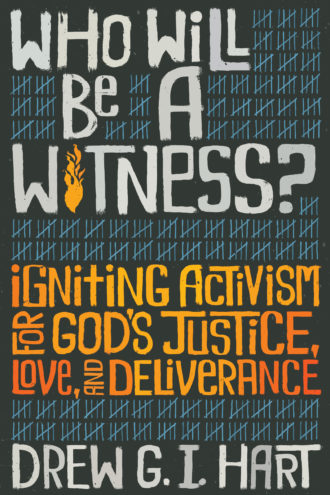My family taught me through example to be generous with what I had and to share with those in need. The Church taught me to give a tithe of 10% of my income back to God. When I was younger, I remember reading the counsel that as your income increased, that you should seek to increase the percentage of your giving.
When I read scriptures about Jesus’ conversation with the rich young ruler (Luke 18:18-29) and the descriptions of the early church’s economics in Acts 4:32-35, I am convinced that I am off the mark about money and wealth.

In his book, “Who Will Be a Witness? Igniting Activism for God’s Justice, Love, and Deliverance,” Dr. Drew Hart expresses the need for the church to move “from a hyper-individualistic lens of wealth as an issue of rights and private property, to the viewpoint of early Christian leaders that nothing is solely yours to do with however you desired. Everything was from God and was to be shared. People that hoard wealth and then give to the poor are not actually engaging in charity.” (p. 250, emphasis mine)
That is the line that stuck with me. Most of the time, I give from my extra. I keep back what I need or may need in the future. I give from what I think I can live without.
Hart continued:
We ought to participate in the new thing God is doing, and it cannot exclude our economic discipleship and our relationship to wealth and poverty. There is significant dissonance between the American church and the thrust of biblical teaching on wealth and poverty, especially when we see that scriptural wisdom climaxes in the life and teachings of Jesus. We will not find a faithful way of participating in God’s economy until we are converted from our internalized thinking, which is apathetic to poverty and triggered by any form of redistribution of resources.” (p.250)
How do I (and how do we) move towards giving “with an eye towards redistribution and not merely comfortable charity”?
Injustice has always allowed for unequal distribution of money and wealth. Injustice and racism in the United States has benefitted white people economically. This video by Phillip Roger Vischer (co-creator of Veggie Tales and What’s in the Bible, founder of Big Idea Productions and Jellyfish Labs) gives an excellent explanation of the ways that wealth has been unequally distributed over the years.
When the rich young ruler heard Jesus’ word, he turned away from Jesus (Luke 18:23). But Zacchaeus does not. Instead, Zacchaeus stood up and said, “Look, Lord! Here and now I give half of my possessions to the poor, and if I have cheated anybody out of anything, I will pay back four times the amount” (Luke 19:8, NIV) Zacchaeus gave money to the poor, but he also made reparations and made amends for the wrong he had done, by paying back money to those who had been wronged.
During our recent webinar with Dr. Hart, I asked, “What steps can we take to answer Jesus’ call to be radically faithful with our wealth?”
Hart responded, “If you care about something, you will find ways to respond.”
Lord Jesus, I care about your call to economic justice and discipleship. Help me to find meaningful ways to respond and to be faithful!
The opinions expressed in articles posted on Mosaic’s website are those of the author and may not reflect the official policy of Mosaic Conference. Mosaic is a large conference, crossing ethnicities, geographies, generations, theologies, and politics. Each person can only speak for themselves; no one can represent “the conference.” May God give us the grace to hear what the Spirit is speaking to us through people with whom we disagree and the humility and courage to love one another even when those disagreements can’t be bridged.
This post is also available in: Español (Spanish)
This post is also available in: Español (Spanish)
